|
Relationship to Core Wave
"Has the scientist and the mystic always been in opposition in the search for truth.? Did the mystic or the
scientist discover and harness fire? Which leader fed his clan better, the great mystic or the great scientist?"
-- wimsey
Connection Tunnels
Alien Dream Time
The Meru Project
The Bridge
Highlight Quotes
"mystics seek to enlarge the mind. Scientists seek to condense the truth"
Q: How about that novel you wrote? What was your
inspiration?
Ehrenreich: The novel was a way to think about
science, because I had gotten my Ph.D. in biology
years ago, and then all that went out of my life
in any direct way. And the novel tries to deal
with the question, "What is a metaphysics for
science? What metaphysical world or universe does
science have that justifies the search for
knowledge?" These are not things a novel should do
- which I guess is what some of the bad reviews
were telling me. But in a kind of loopy, thriller
way, these are the questions the novel answers. It
creates this metaphysics, all through various
plots and conspiracies.
From KIPPER's GAME:
"Once, years ago, Steve had told her a piece of Hindu, or maybe it
was African, wisdom that said that the purpose of humanity was to
transport water from place to place ....Actually, Steve had been
talking to Maisy when Della came into the kitchen with grocery
bags and started unloading them...Della had thought at first this
was a riddle or the tail end of one. "What do you mean,
transporting water?" she asked.
"Well,"--Steve wriggled in his chair--"water by itself goes only
downhill. You need people, with pipes or pots or something, to get
it uphill."
"Which is where the water wants to go?" Della laughed. She was in
a good mood...but Steve was frowning.
"Maybe."
"You mean the water is using us, just as a means of getting
around?"
"Not `using', no one said `using'. I mean like bees from the point
of view of flowers."
Maisy nodded in a way that made it seem that she and Steve had
already worked this through. "Bible says the animals are put here
to work for us. but it doesn't say who we're supposed to be
working for here."
"God," Della said. "The Bible says God, it doesn't say water."
"Oh, it doesn't have to be water, Mom, it could be anything.
Rocks. Dirt. Anything that can't get to where it wants to by
itself. How would we know?"
-- Barbara Ehrenreich
Geographic Location
How about Rome where the term metaphysics was thought to originate in about 70BC.
Images and Clips

Access and Distribution
|
|
Main Submission
How many times have I chastised myself because I did no follow my "gut" feeling or my intuitive response. On the other
hand, how often have I experienced failure because I didn't focus on the evidence and facts before making a decision. I would guess I am not alone
in this and am experiencing a timeless dichotomy. Is there a human preference in technique for the gathering of truths or do we undulate between
mysticism and science depending on perceived successes. In other words, the revered leader is the one who accumulates the truths that result in a
well fed tribe regardless of his choice in method.
Deeper

Barbara Ehrenreich
|
From a review of KIPPER'S GAME. Review by Ram Samudra
Della Markson, who's Kipper's (aka Steve Markson) mom is dumped by her husband
Leo. Alone, she moves from day to day in a daze with no apparent reason to
exist. In the past, she had devoted her life to raising her son---but he too
leaves her. She blames herself for her son's action, but only in the end
does she realise that Kipper left her to program a computer game---one that
would stimulate the pleasure centre in the brain directly, thus making it
the most addictive game known to man. Why bother with sex, or other orgasmic
experiences, if the pleasure centre can be stimulated directly. One could do
this forever, physically leading the life of a vegetable, but mentally
experiencing mutiple orgasms.
So what is it about the game that stimulates the pleasure centre? Ehrenreich
plays on man's quest for knowledge as the ultimate aphrodisiac. This is
evident in the way she depicts science as the ultimate learning experience,
but carefully hidden from the mainstream populace by camouflaging it as a
tedious enterprise. The reason people gather knowledge in this novel is even
more way out; it is so extra-terrestrial life forms can learn about us. To
summarise: Kipper writes a game that stimulates the pleasure centre, by
encapsulating the human experience of questioning and learning, so
extra-terrestrials can learn more about us when they come across the game.
Puts Gibson to shame, doesn't it?
Follow Ups
 Thank you for a very interesting and thought provoking post. Thank you for a very interesting and thought provoking post.
My first thought regarding the distinction between science and mysticism is a question. Is there really a fundamental distinction? Aren't these two
more alike than they are different? Perhaps this is because of my natural inclination against confrontation, and toward seeing the similarities in
things. Or maybe it is because it seems to me that science and mysticism have at times seemed indistinguishable, and the more science learns, the
more questions it raises. Quantum physics is a perfect example of science bearing out what mysticism has been telling us for centuries.
It's like the debate between creation and evolution. To me, the acceptance of one does not rule out the other. Perhaps science and mysticism are just
two sides of the yin yang, and when the yin yang spins, the two are blurred into a single unit, which is a more accurate representation of the truth.
For me, considering the differences leads not to how the two are different, but how they are the same.
This points to another relationship between this move and the core wave. The timeless interplay between separation and unity. Some people are
black and some are white but, more importantly, all people are people.
-- Erik J. Lundquist
I have always thought of science and spirituality as being the same thing. Why did I just write that. I do think that now, but for many years thought they had nothing to do with each other. Hmmm. Well in the not to distant past these subjects were not as seperated as they are today. I have developed a philosophy about reason and faith. These are two tools to navigate our lives. It requires faith to believe that I am actually typing these words and not having the experiences fed to me by some machine while I lie on a table somewhere with wires connected to my head. Blind faith is far from ideal in my opinion. That's why we have reason. We examine and make decisions about which leaps of faith to take and which not to take. Reason that denies faith is also not ideal. It can only crawl along at the pace of its own reductions. Working with faith and reason together we can make great leaps and be less likely to go over cliffs. Rhyme and Reason.
-- Robert C. Cohen
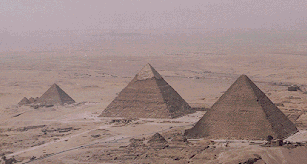
|

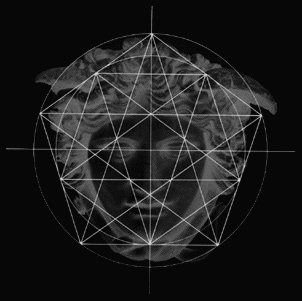 "As a time Transcendant Idea, I see all our individual and collective endeavours falling into either of these categories.
"As a time Transcendant Idea, I see all our individual and collective endeavours falling into either of these categories. 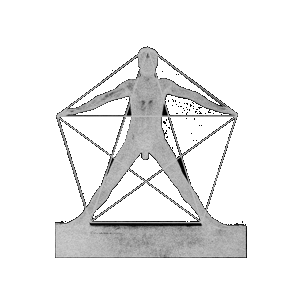 Either we
are trying to expand our awareness etc. to encompass new experience and information or we are trying to condense the experience or information
and link it to the known in order to compartmentalize it and compress it. As the mystic , we seek by expanding,
Either we
are trying to expand our awareness etc. to encompass new experience and information or we are trying to condense the experience or information
and link it to the known in order to compartmentalize it and compress it. As the mystic , we seek by expanding, 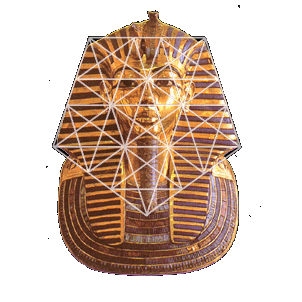 exorcising our filters and bias and
linear logic and assume an emptiness,
releasing what we "think we know". As the scientist we seek microscopically, using all our previous bias and
filters and linear logic, a void or space in between the bodies of "Knowledge" where the "truth" or unknown must reside.
" -- wimsey
exorcising our filters and bias and
linear logic and assume an emptiness,
releasing what we "think we know". As the scientist we seek microscopically, using all our previous bias and
filters and linear logic, a void or space in between the bodies of "Knowledge" where the "truth" or unknown must reside.
" -- wimsey


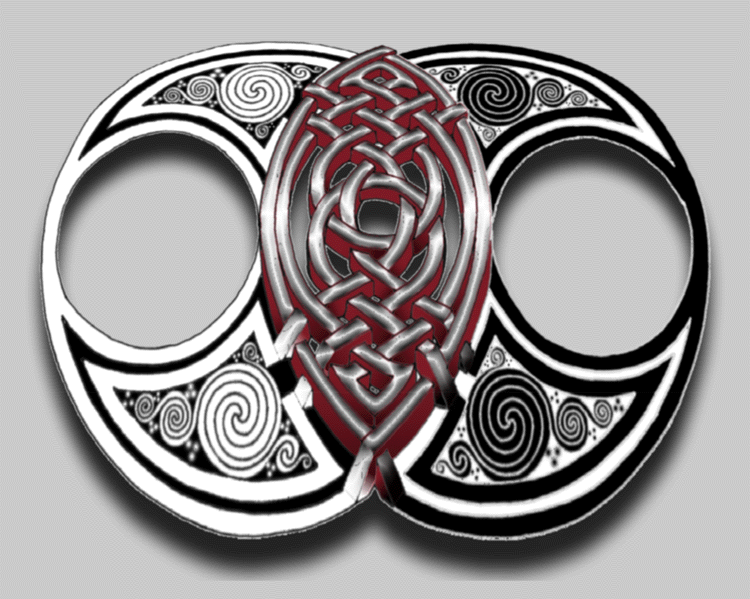


 Thank you for a very interesting and thought provoking post.
Thank you for a very interesting and thought provoking post.
